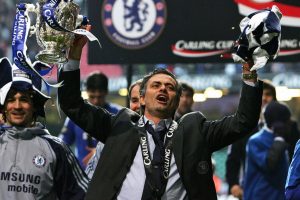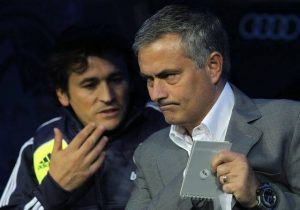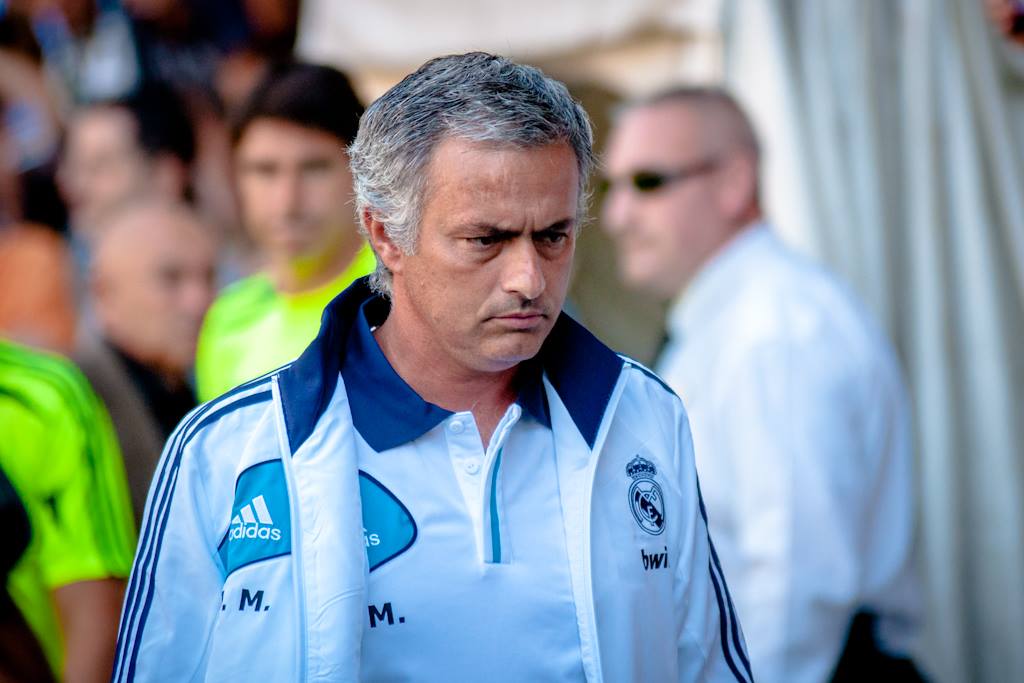Is Mourinho’s third-season syndrome a coverup?
by Tommaso Dimiddio, reporter
Two Champions Leagues, eight domestic titles and 15 cup triumphs. This is Jose Mourinho’s record so far in his career as a manager. So why does he not seem to last longer than three seasons at a club? Why is he famous for his frictions and fallouts with players? Why do people still debate whether he is a top manager or not? In order to find an answer to all these questions, it is worth taking a look at the Portuguese manager’s career.
Unlike many of his colleagues, Jose Mourinho was not a great footballer. He only played for a couple of small teams in Portugal and, given the poor results, he chose to retire when he was just 24. However, Mourinho is not the first one to shine more on the bench rather than on the pitch. Maurizio Sarri, Arrigo Sacchi, Felipe Scolari, Rafael Benitez and Marcelo Bielsa have all had a similar fate.
Since the very beginning, Jose has had special relationship with English football. The Special One, as he is called, became Bobby Robson’s assistant, who Mourinho had met at Sporting CP, first at Porto and then at Barcelona. After becoming Louis van Gaal’s assistant in Spain, he finally had his first experience as a head coach with Benfica and Uniao Leira where he surprised everyone by finishing third in the Portuguese league.
At that point, once he signed for Porto, his well-known career could start. In his homeland, Mourinho won two Primeira Ligas, one Portuguese Cup, one Portuguese Super Cup, one UEFA Cup and most of all the Champions League in 2004 during his third season.
Roman Abramovic decides to bring him for the first time to Chelsea where he wins two Premier Leagues, one League Cup and one Community Shield in his first two seasons. It is not time for Mourinho’s third-season syndrome yet as he wins one FA Cup, another League Cup and reaches the Champions League semi-finals in 2007. He leaves the club at the beginning of his fourth season.

Between 2008 and 2010, Mourinho arguably reaches the peak of his career with Inter Milan by winning two Serie As, one Italian Super Cup and most of all a treble in his second season (Serie A, Champions League and Coppa Italia).
No third season yet for Jose as he joins Real Madrid in 2010. With the Spanish side his record is updated with one Copa del Rey, one Liga, one Spanish Super Cup and three Champions League semifinals.
The third-season syndrome finally appears during his second experience at Chelsea when he leaves after winning one Premier League and one League Cup.
The same trend is being seen at Manchester United now; the club is 10th after seven games and out of the Carabao Cup. One Europa League and one League Cup cannot be enough to save Mourinho’s job at this point.

Having said so, it could be that Mourinho’s third-season syndrome is just a nicer way of saying that the Special One is not that special anymore; or that perhaps he has never been so special.
It is not farfetched to say that fans have never been too excited by Mourinho’s defensive football as well as his tricky relationships with some well-loved players like Iker Casillas or Paul Pogba.
Moreover, although Mourinho’s motivational and psychological techniques worked in the early stages of his career, they are now often criticised as they appear like a disrespectful way to fill the gap between him and more tactically prepared managers like Wenger or Guardiola.
As a consequence, it is reasonable to say that Mourinho has perhaps helped to revolutionise the image of a football manager who nowadays needs to have great communication skills as well.
In the same way, he seems to belong to a different category of managers who are successful but will not be remembered because of the way their teams played.
Once again, it is entirely up to fans whether they prefer to collect titles, which is often the case, or enjoy watching their team.
Is this enough to say that The Special One’s effect is over? Probably not, but things will be a lot clearer by the way his season at Manchester United will end as well the continuation of his career.

